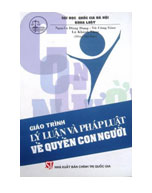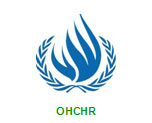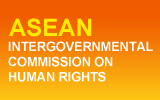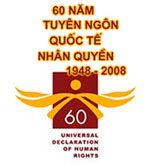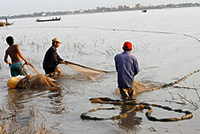
Rules of tenure impact directly on the human rights of individuals, communities and peoples, because they govern how, when, why and who can own, manage and utilize the resources of land, fisheries and forests.
Where rules of tenure are weak or unclear, those who are marginalized and excluded may suffer and have difficulty escaping hunger and poverty.
The guidelines were drawn up by the Committee on Food Security, an intergovernmental group established in 1974 as a UN forum for the development and promotion of policies in support of access to food.
In drawing up the tenure guidelines, the Committee involved more than 90 countries, UN agencies and other international organizations, civil society, indigenous groups, industry representatives and the private sector in several rounds of discussions and negotiations.
The UN Human Rights Office acted in an advisory role through the negotiations advocating for the incorporation of human rights standards in the guidelines.
Craig Mokhiber, from the UN Human Rights Office, welcoming the agreement said, “This is a globally significant achievement for the protection of human rights in relation to the governance of tenure of land, fisheries and forests. Properly interpreted and applied, they will become a useful tool for human rights defenders.”
“The guidelines reflect fundamental human rights, including, the rights to food and to adequate housing, non-discrimination, gender equality, access to justice and remedies, participation and consultation, prohibition of forced evictions and the human rights responsibilities of business,” Mokhiber said.
The guidelines also address the rights of specific groups, such as indigenous peoples, those living in informal settlements, refugees and displaced people and human rights defenders.
Agreeing with concerns expressed by indigenous representatives that an overly restrictive interpretation of the rules would risk rights of indigenous peoples, Mokhiber emphasized that, “all of the provisions must be interpreted and applied in a manner that does not fall below international human rights standards, including those applicable to indigenous peoples.”
“This is important because international human rights standards provide very clear and concrete guidance in relation to the protection and implementation of the relevant human rights principles,” he said.
The agreement itself is quite explicit, saying: “Nothing in these Guidelines should be read as limiting or undermining any legal obligations to which a State may be subject under international law.”
Recently, the UN independent experts on food and on indigenous peoples urged the Governments of South-East Asia “to align – as a matter of urgency – their biofuels and investment policies with the need to respect land users’ rights as detailed in the voluntary guidelines”.
The UN Special Rapporteur on the right to food, Olivier De Schutter, and the UN Special Rapporteur on the rights of indigenous peoples, James Anaya were highlighting cases in South-East Asia where agro-fuel developments are rapidly expanding, often at the expense of farmers, fishers, hunters, foragers and craftsmen.
Both experts expressed concerns about the environmental impacts of many of the projects and an apparent lack of adequate consultation and transparency in the land acquisition processes.
25 June 2012

